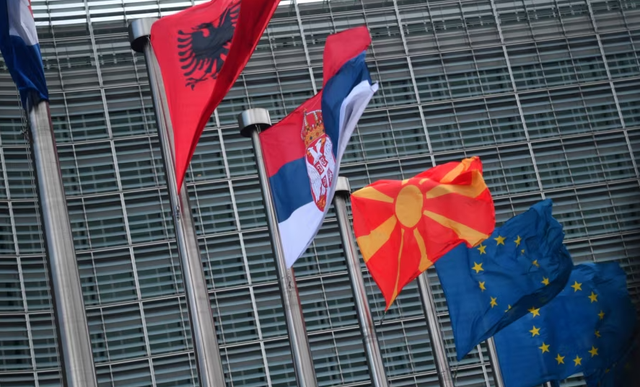European Commission approves Reform Agendas of Western Balkans countries, clearing the path for payments under the Reform and Growth Facility

On Wednesday, the Commission approved the Reform Agendas of Albania, Kosovo, Montenegro, North Macedonia, and Serbia. In these agendas, the five Western Balkan governments commit to implementing socio-economic and fundamental reforms aimed at promoting growth and convergence with the EU as part of the Growth Plan for the 2024-2027 period.
Why is this significant: This is a crucial step to enable payments under the EU’s €6 billion Reform and Growth Facility, which will be disbursed upon the completion of the agreed reform measures.
Context: The Growth Plan for the Western Balkans aims to accelerate the socio-economic convergence of the region with the EU and pave the way to EU membership. The Plan is supported by an increase of financial assistance through the new Reform and Growth Facility. The Facility will complement the current financial assistance under the Instrument for Pre-accession Assistance (IPA III).
The Facility has a financial envelope of €6 billion, including €2 billion in grants and €4 billion in highly concessional loans. At least half of the total amount (grants and loans) will go to investments through the Western Balkans Investment Framework (WBIF). The remaining amount of loans will be provided to the treasuries of the Western Balkan governments to accelerate growth based on socio-economic reforms.
The Reform Agendas approved on Wednesday prioritize key areas such as the rule of law and other fundamental reforms, governance, the digital and green transitions, human capital development, and improving the business environment. Additionally, each beneficiary has proposed a list of indicative investments to be funded under the Facility, aimed at accelerating the closing of the socio-economic gap between the beneficiaries and the EU. These investments will be approved in the context of the Western Balkan Investment Framework.
Payments will be made twice a year until 2027, following requests from Western Balkan partners and the Commission’s verification of three sets of conditions:
1. Pre-conditions: Upholding democratic mechanisms, the rule of law, and respect for human rights. A specific pre-condition applies to Serbia and Kosovo, requiring constructive engagement in normalizing relations, including the implementation of all Dialogue agreements.
2. General conditions: Ensuring macro-financial stability and sound public financial management before funds are disbursed.
3. Payment conditions: Achieving both quantitative and qualitative milestones set within the reform agendas.
The Commission is also awaiting the formal submission of Bosnia and Herzegovina’s Reform Agenda.
What is next: The Commission will now move forward with signing loan and facility agreements with the beneficiaries. At the same time, beneficiaries can now request pre-financing of up to 7% of their total indicative allocation under the Facility.
The disbursement of pre-financing will be contingent on the entry into force of the facility and loan agreements, as well as compliance with the preconditions, which the Commission will monitor before each payment.


